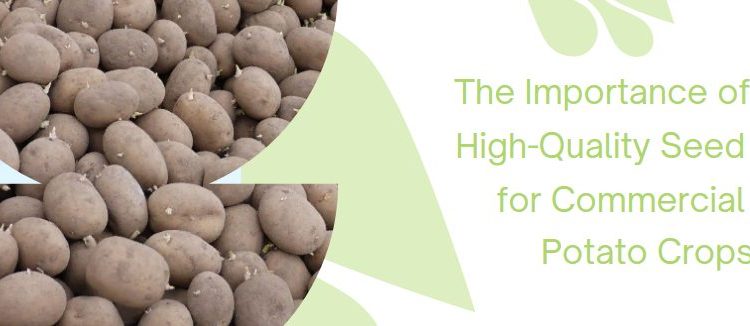#CommercialPotatoCrops #HighQualitySeed #SeedCertificationLabels #CropYield #ReturnOnInvestment #SeedPotatoCertification #Australia
Commercial potato farming involves various costs, and approximately 30% of these costs can be attributed to seed expenses. As a result, using high-quality seed is crucial to achieve an effective rate of return from subsequent potato crops. Additionally, the introduction of pests such as bacterial wilt or potato cyst nematode can lead to long-term and costly issues. In Australia, seed potato certification authorities have established seed certification labels to ensure the quality and reliability of seed potatoes. This article explores the development and significance of seed certification labels in the context of commercial potato farming.
Development of Seed Certification Labels:
Australia has implemented a minimum national standard for seed potato certification, which is enforced by several certification authorities. These authorities include Tasmanian Seed Potato Certification, Crookwell Potato Growers Association, Western Australian certified seed potato scheme, and the Australian Seed Potato Industry Certification Authority (AuSPICA). The purpose of these certification bodies is to uphold strict guidelines for seed potato production and ensure that certified seed meets the required standards.
Seed certification labels serve as visual indicators of the quality and integrity of seed potatoes. These labels indicate that the seed has undergone a series of inspections, testing, and quality control measures to verify its suitability for commercial cultivation. The labels typically include information regarding the seed’s origin, variety, and the certification authority responsible for its approval.
Consequences of Seed Certification Labels:
The implementation of seed certification labels in Australia has had significant consequences for commercial potato farming. Firstly, it has provided farmers with a reliable means to identify high-quality seed potatoes. By choosing certified seed, farmers can minimize the risk of introducing pests or diseases to their farms, reducing the potential for long-term damage and costly treatments.
Moreover, using certified seed improves crop yield and quality. Certified seed is rigorously tested for various diseases, pests, and genetic traits, ensuring that it possesses the desired characteristics for optimal growth and productivity. By using high-quality seed, farmers can enhance the overall performance of their potato crops, leading to increased yields and improved market value.
Furthermore, seed certification labels have facilitated traceability within the potato industry. In the event of an issue or outbreak, the certification labels allow for easy identification and tracking of the seed’s origin, helping authorities and farmers take necessary actions promptly. This traceability aids in managing and containing potential problems, protecting the industry and maintaining consumer confidence in the quality of potatoes.
The use of high-quality seed is vital for commercial potato farming due to its significant impact on crop yield, return on investment, and long-term sustainability. Seed certification labels in Australia have played a crucial role in ensuring the quality and integrity of seed potatoes, enabling farmers to make informed decisions and mitigate risks associated with pests and diseases. By prioritizing certified seed, farmers can optimize their potato crops’ performance, reduce potential losses, and contribute to a thriving potato industry.
Source: Australian Potato Growers





